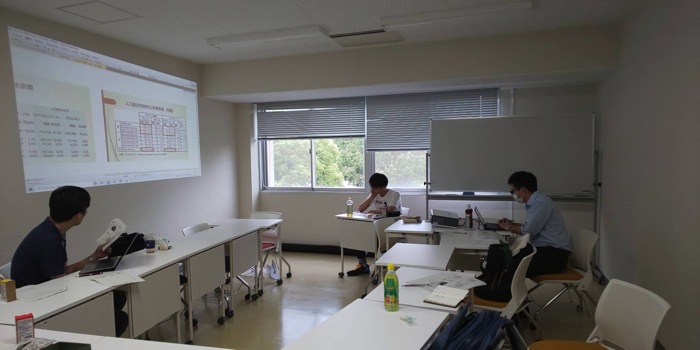- Project Leader : Kambara Kentaro (Kyoto University, Graduate School of Asian and African Area Studies)
Outline of Research
How have Islamic financial services contributed to production activities in Malaysia? Why do Malaysian people prefer Islamic finance to conventional finance?
This research elucidates the dynamics of Islamic finance-oriented growth of the Small and medium-sized enterprises (SMEs) in Malaysia through an analysis of Islamic finance. To achieve this goal, this research verifies the hypothesis that Malaysia’s Islamic finance functions as an incentive to promote domestic SMEs’ activities. Specifically, this research focuses on two points about Islamic finance: (I) policy making and evaluation considering the significance of SMEs, and (II) the lending operations with an emphasis on the promotion of SMEs.
Description
Islamic finance that complies with Islamic law (Sharia) was first introduced in Malaysia in the 1960s and has been evolving since then. Development plans and policies have expected the Islamic financial system to greatly benefit the Malaysian socio-economy, including small- and medium-sized enterprises (SMEs), which account for most of all enterprises and greatly contribute to employment in Malaysia.
The purpose of this research is to verify the hypothesis that Islamic finance provides incentives for Malaysian SMEs. In addition, this research attempts to clarify how Malaysian policies on Islamic finance for SMEs have been made.
Previous studies have found that Islamic banks in Malaysia have not adequately contributed to domestic production activities. However, this research will shed light on Islamic finance as production finance. Furthermore, Islamic finance and halal businesses working as Islamic economic systems have often been analyzed independently in previous research, but this study considers them in an integrated manner. In these respects, this study is significant to Islamic economic research in Southeast Asia.
This research can have the following expected results. First, comparing the features of Islamic economic institutions and services in Malaysia to those in other countries or regions, such as in the Middle East and Africa, will clarify the unique characteristics of Malaysia’s Islamic finance. Second, the study will promote understanding of diversity in Southeast Asia’s economy. This research focuses on Islamic values in Malaysia as well as the actual situation in the economic field, thus promoting understanding of the dynamics of Southeast Asian economies and societies. Third, this research can provide new insights into conventional financing, which has been challenging for SMEs. Based on these, it will present a new value standard for the theory and practice of SME finance through consideration of finance and industrial promotion based on Islamic values.


